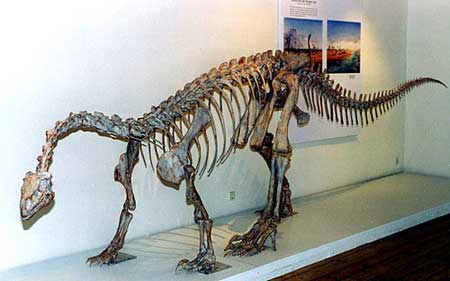French researchers have asserted that some dinosaur species from the Cretaceous period had warm blood, similar to mammals, contradicting current hypotheses that dinosaurs were cold-blooded like their distant relatives, reptiles.
To reach this conclusion, scientists from the French National Center for Scientific Research (CNRS) analyzed the isotopic composition of oxygen absorbed by dinosaurs and trapped in their fossilized tissues, particularly in their fossilized tooth enamel.
The researchers noted that the metabolic processes of the studied dinosaurs (from the Cretaceous period, approximately 145 million to 65 million years ago) resemble those of present-day mammals.
The scientists indicated that they will investigate samples from older dinosaurs from the Cretaceous and Triassic periods. However, fossils from these periods are extremely rare, and their owners are concerned that analysis could damage them.
The existence of warm-blooded dinosaurs contradicts the hypothesis that their extinction was caused by a meteor impact that led to a sudden cooling of the climate. Warm-blooded animals can better withstand climate changes compared to cold-blooded animals.

Triassic dinosaur skeleton (Photo: dinosaur.net)
V.S


















































